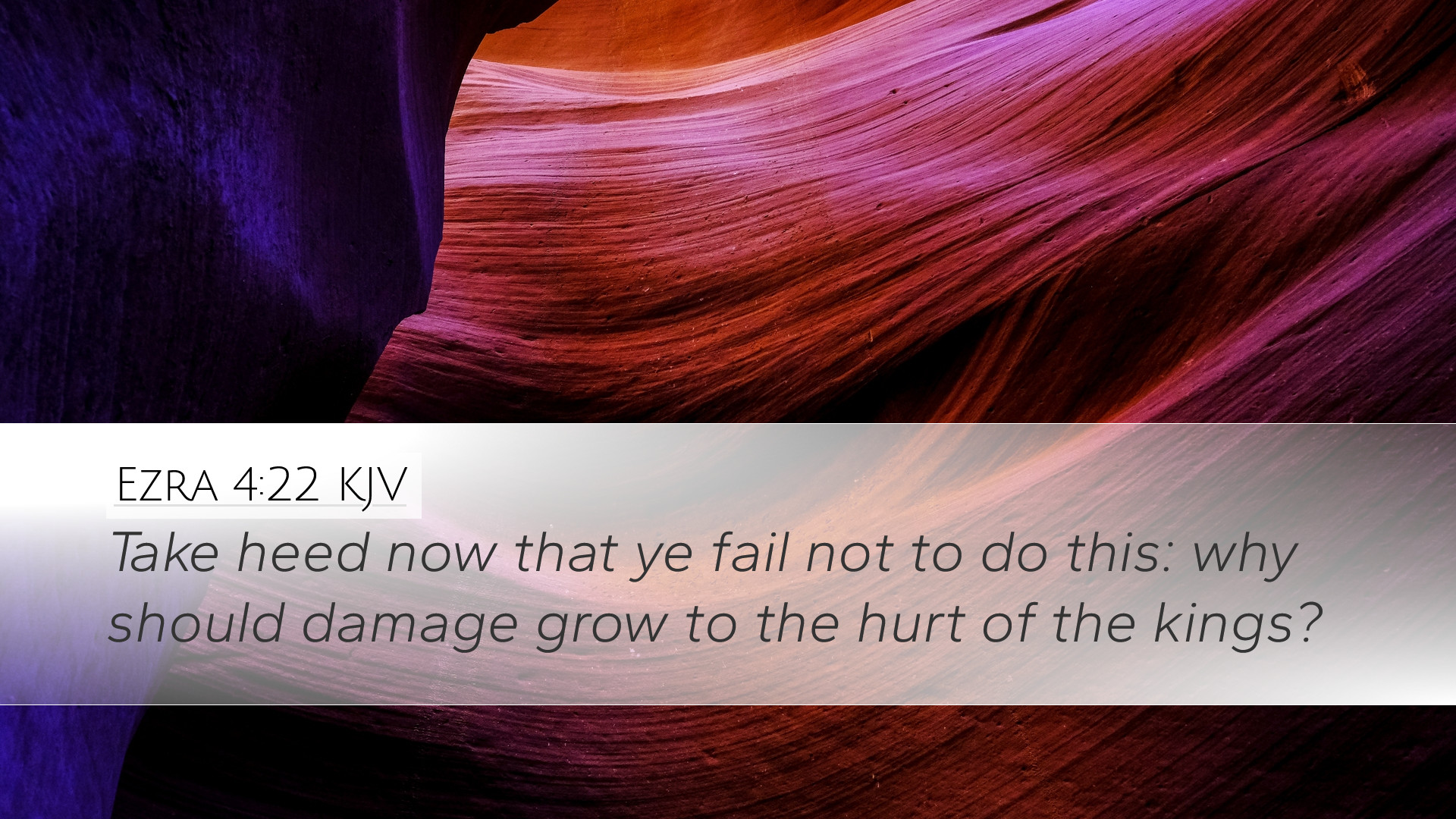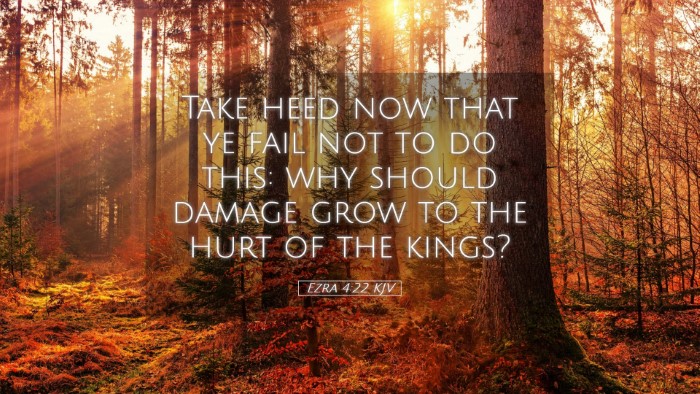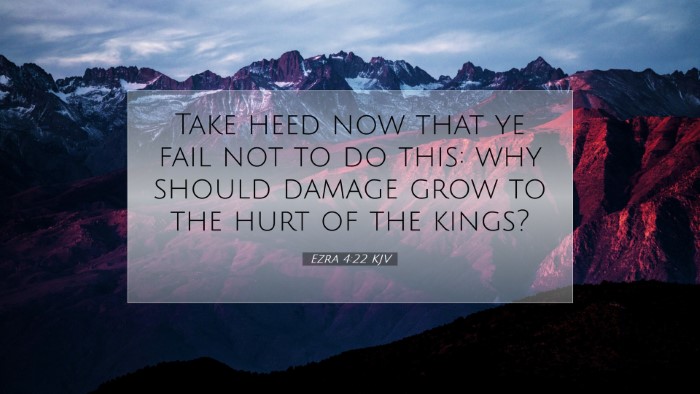Old Testament
Genesis Exodus Leviticus Numbers Deuteronomy Joshua Judges Ruth 1 Samuel 2 Samuel 1 Kings 2 Kings 1 Chronicles 2 Chronicles Ezra Nehemiah Esther Job Psalms Proverbs Ecclesiastes Song of Solomon Isaiah Jeremiah Lamentations Ezekiel Daniel Hosea Joel Amos Obadiah Jonah Micah Nahum Habakkuk Zephaniah Haggai Zechariah MalachiEzra 4:22
Ezra 4:22 KJV
Take heed now that ye fail not to do this: why should damage grow to the hurt of the kings?
Ezra 4:22 Bible Commentary
Commentary on Ezra 4:22
Contextual Background: Ezra 4:22 is situated within a broader narrative concerning the rebuilding of the temple in Jerusalem. The Persian period, when Ezra was written, represents a significant moment for the Jewish people returning from Babylonian exile. It reflects themes of restoration, opposition, and divine guidance.
Verse Text
"Take heed now that ye fail not to do this: why should damage grow to the hurt of the kings?" - Ezra 4:22 (KJV)
Commentary Insights
1. The Call for Vigilance
Matthew Henry emphasizes this verse as an exhortation for carefulness and diligence. The phrase "take heed now" implies an urgent call to attention, indicating that vigilance is necessary to avoid negative consequences. This highlights the need for the leaders and people of Israel to be observant and proactive in their actions to ensure the continuation of their divine mission.
2. The Consequences of Inaction
Albert Barnes notes that the warning against failure is significant. The phrase "fail not to do this" alludes to the instructions previously given regarding the rebuilding. If the Jewish people were negligent in their responsibilities, it could lead to greater damage, not just to themselves, but to their political standing with the Persian kings. Barnes views this not only as a meditation on the physical act of rebuilding but as a spiritual imperative to adhere to God’s calling despite opposition.
3. The Power of Opposition
Adam Clarke reflects on the external pressures faced by the Jews during this time. The context of the verse shows that there were those who wished to hinder the work of the temple. Clarke suggests that the "hurt of the kings" could be interpreted as potential discord with the ruling authority and emphasizes that such a relationship is vital for peace and progress. Understanding the political environment is crucial as it reflects the delicate balance between maintaining faithful operations and navigating secular powers.
4. Divine Providence and Human Responsibility
This verse serves as a reminder of the intertwining of divine providence and human responsibility. The Jewish leaders were called to act decisively, knowing that their work in Jerusalem was not just a task but part of God’s larger plan for redemption and restoration. Their vigilance was critical; to neglect their responsibilities would diminish their witness and testimony before both God and the nations around them.
5. Application for Today’s Believers
- Prayer and Discernment: Like the Israelites, modern believers are encouraged to approach their tasks with prayerful consideration, ensuring they are guided by the Holy Spirit in their endeavors.
- Community Responsibility: The admonition to "take heed" is relevant to church communities today. They must remain vigilant against complacency and external pressures that might lead them to abandon their mission.
- Engagement with Society: The call to avoid "damage" suggests an awareness of how Christian actions and failures reflect on the broader community, urging believers to engage responsibly in societal matters.
Conclusion
Ezra 4:22 encapsulates a pivotal moment that reminds pastoral leaders, theological students, and scholars alike of the significance of maintaining diligence in fulfilling God-given missions. By embracing the teachings of historical commentaries, contemporary believers can glean insight necessary for navigating the complexities of faith, community, and governance in their spiritual walks today. The careful integration of divine principles with practical actions remains elemental for fruitful ministry and witness.


